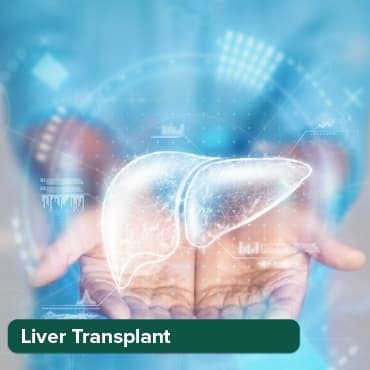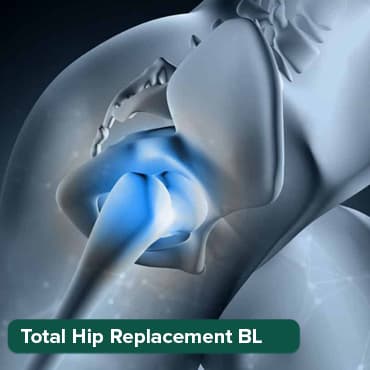
Kidney Stones Treatment in India: Choosing the Right Procedure for Your Unique Needs
29 May, 2023
Kidney stones can be a painful and uncomfortable condition to deal with. They can form when there is an accumulation of minerals and salts in the kidneys, which can lead to the formation of solid masses. Depending on the size and location of the kidney stones, treatment options can vary.
In India, there are several treatment options available for kidney stones. In this blog, we will discuss the different procedures available and how to choose the right one for your unique needs.
Transform Your Beauty, Boost Your Confidence
Find the right cosmetic procedure for your needs.

We specialize in a wide range of cosmetic procedures

1. Extracorporeal Shock Wave Lithotripsy (ESWL)
ESWL is a non-invasive procedure that uses shock waves to break up kidney stones into smaller pieces that can be passed more easily through urine. This procedure is typically used for smaller stones (less than 2cm) and has a success rate of around 70-80%. ESWL does not require anaesthesia and has a shorter recovery time compared to more invasive procedures.
2. Percutaneous Nephrolithotomy (PCNL)
PCNL is an invasive procedure that involves making a small incision in the back and using a scope to remove larger kidney stones. This procedure is typically used for larger stones (greater than 2cm) or stones that cannot be broken down by ESWL. PCNL requires anaesthesia and has a longer recovery time compared to ESWL.
3. Ureteroscopy
Ureteroscopy involves using a thin scope to visualize the ureter and kidney and remove kidney stones. This procedure is typically used for mid-sized stones (between 1-2 cm) or for stones located in the ureter. Ureteroscopy requires anaesthesia and has a moderate recovery time.
Most popular procedures in India
Atrial septal defect
Upto 80% off
90% Rated
Satisfactory

Coronary Angiogram a
Upto 80% off
90% Rated
Satisfactory

Coronary Angiogram C
Upto 80% off
90% Rated
Satisfactory

Liver Transplant
Upto 80% off
90% Rated
Satisfactory

Total Hip Replacemen
Upto 80% off
90% Rated
Satisfactory

4. Open Surgery
Open surgery is a rare treatment option reserved for cases where other treatments have failed or are not appropriate. It involves making a larger incision in the back or abdomen to remove kidney stones. Open surgery requires anaesthesia and has a longer recovery time compared to other procedures.
Choosing the Right Procedure for Your Unique Needs When it comes to choosing the right kidney stone treatment option, there are several factors to consider:
1. Size and Location of the Stones
The size and location of the kidney stones play a significant role in determining the most appropriate treatment option. Smaller stones can typically be treated with non-invasive procedures such as ESWL or Ureteroscopy, while larger stones may require more invasive procedures such as PCNL or open surgery.
2. Health Status
Your overall health status and medical history will also play a role in determining the best treatment option. For example, if you have a history of bleeding disorders or have recently undergone surgery, more invasive procedures such as PCNL or open surgery may not be appropriate.
3. Recovery Time
The recovery time associated with each procedure can also vary. If you have a busy schedule or cannot take time off work, non-invasive procedures such as ESWL may be the best option as they typically have shorter recovery times compared to more invasive procedures.
4. Healthcare Provider Recommendation
It's important to work closely with your healthcare provider to determine the best treatment option for your unique needs. They will take into account your medical history, symptoms, and other factors to recommend the most appropriate treatment option.
Alternative Treatments for Kidney Stones
Aside from the conventional treatment options, there are also alternative treatments available that some people may find helpful. These treatments are often used as complementary therapies alongside conventional treatments.
1. Ayurvedic Medicine
Ayurvedic medicine is a traditional Indian medicine that uses natural remedies to treat various health conditions. Ayurvedic practitioners may use herbs, dietary changes, and other natural remedies to help dissolve kidney stones and alleviate symptoms. However, it's essential to consult with a qualified Ayurvedic practitioner before trying any Ayurvedic remedies, as some herbs may interact with medications or have adverse effects.
2. Homeopathy
Homoeopathy is a system of medicine that uses highly diluted substances to stimulate the body's natural healing processes. Homoeopathic remedies may be used to help relieve pain and discomfort associated with kidney stones. However, like Ayurvedic medicine, it's essential to consult with a qualified homeopath before trying any remedies.
3. Acupuncture
Acupuncture is an alternative therapy that involves inserting thin needles into specific points on the body to help alleviate pain and promote healing. Some people may find acupuncture helpful in reducing the pain and discomfort associated with kidney stones.
4. Yoga and Meditation
Yoga and meditation can be helpful in managing stress and anxiety associated with kidney stones. Certain yoga postures may also help stimulate the kidneys and urinary system, which can help prevent the formation of kidney stones. However, it's important to consult with a qualified yoga instructor before trying any yoga postures.
Conclusion
When it comes to treating kidney stones, there are several conventional and alternative treatment options available. Choosing the right treatment option depends on various factors such as the size and location of the stones, your overall health status, and recovery time. While alternative therapies may be helpful in alleviating symptoms and promoting healing, it's essential to consult with a qualified practitioner before trying any remedies. By working closely with your healthcare provider and exploring different treatment options, you can effectively manage and treat kidney stones.
Wellness Treatment
Give yourself the time to relax
Lowest Prices Guaranteed!

Lowest Prices Guaranteed!




